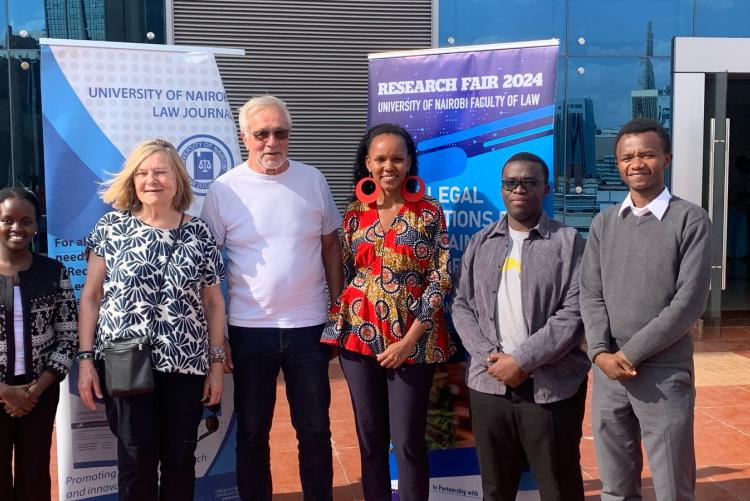On Tuesday, March 4th, students from the Faculty of Law attending the Law in Transdisciplinary Contexts course had the privilege of engaging in a thought-provoking lecture delivered by esteemed scholar Professor Bo Strath from the University of Helsinki. The session, held from 2:00 to 4:00 PM at the University Tower, delved into the profound concepts of Ujamaa and Ubuntu, exploring their potential as guiding principles for global governance, legal frameworks, and social justice.
Professor Strath provided an in-depth analysis of the philosophical underpinnings of Ujamaa and Ubuntu, emphasizing their roots in African traditions and their relevance in contemporary global discourse. He illustrated how these philosophies, centered on communalism, solidarity, and ethical responsibility, could serve as foundational meta-norms in addressing the complexities of planetary governance. His insights sparked meaningful discussions on how these African values could contribute to shaping international legal norms, fostering global cooperation, and promoting sustainable development in an increasingly interconnected world.
The interactive session saw students and faculty members engage in a rich dialogue, critically examining the applicability of Ujamaa and Ubuntu in modern legal and ethical contexts. Thought-provoking questions emerged on how these philosophies could inform policies on human rights, economic equity, and environmental sustainability on a global scale.
The lecture, organized by the University of Nairobi Faculty of Law Journal, provided a unique opportunity for participants to reflect on the intersections between African philosophical traditions and contemporary global challenges. As the session concluded, attendees left with a deeper appreciation of the role indigenous knowledge systems can play in shaping inclusive and sustainable governance structures for the future.
By bridging historical wisdom with present-day legal and ethical considerations, the discussion on Ujamaa and Ubuntu reinforced the importance of integrating diverse cultural perspectives in the pursuit of global justice and collective well-being.

